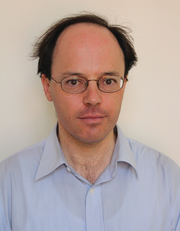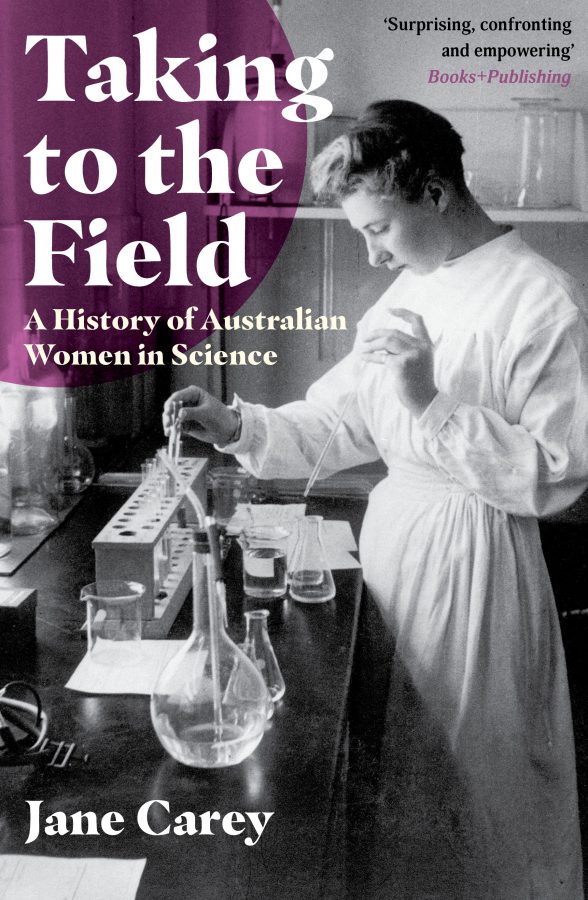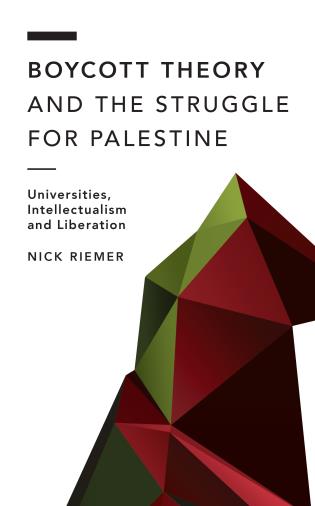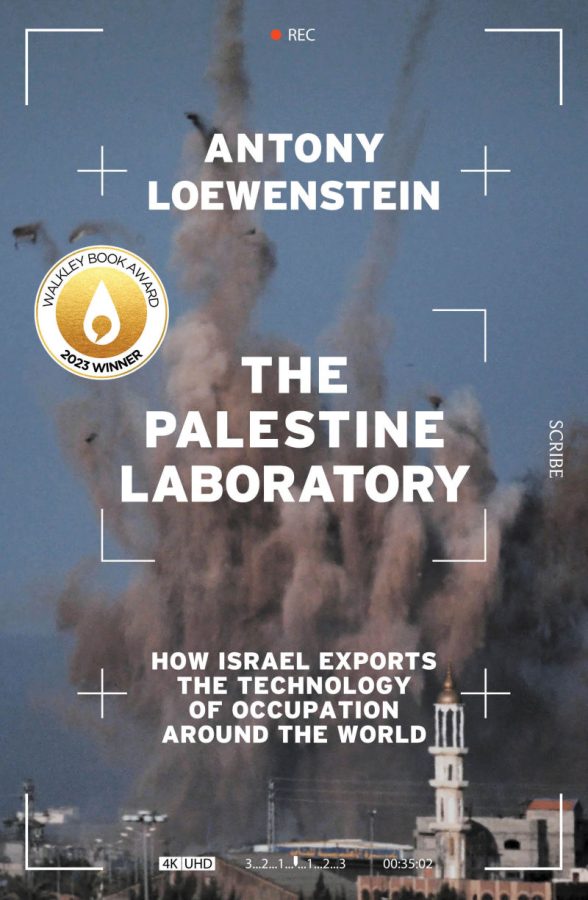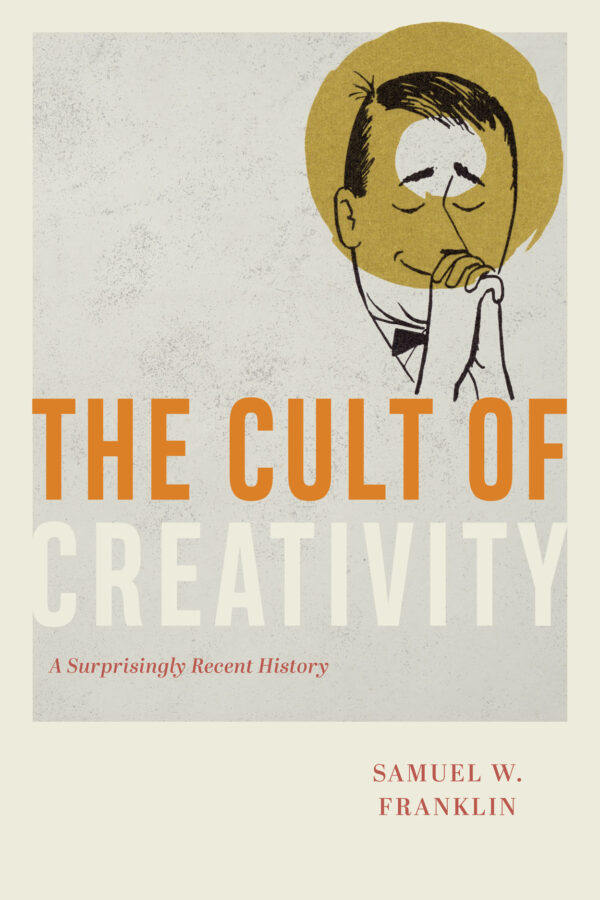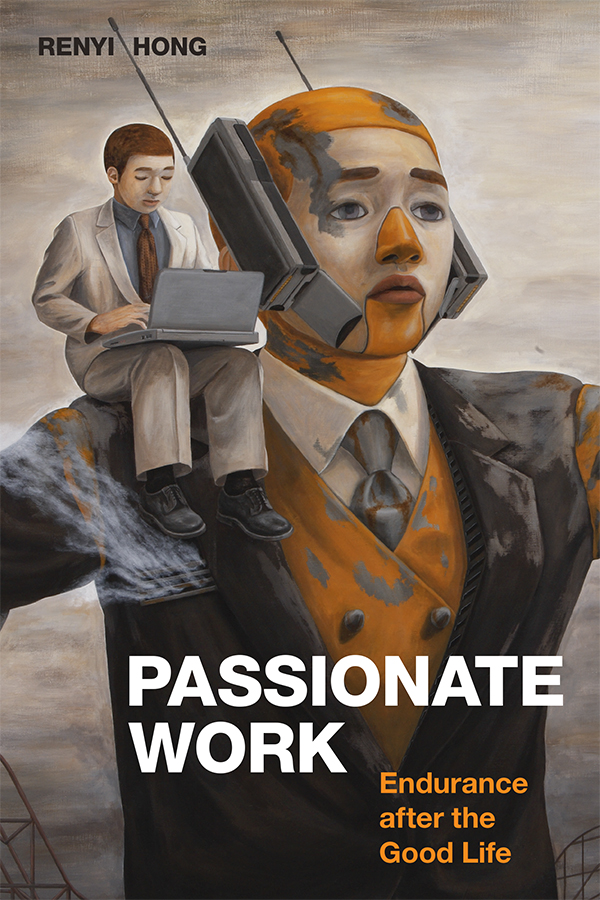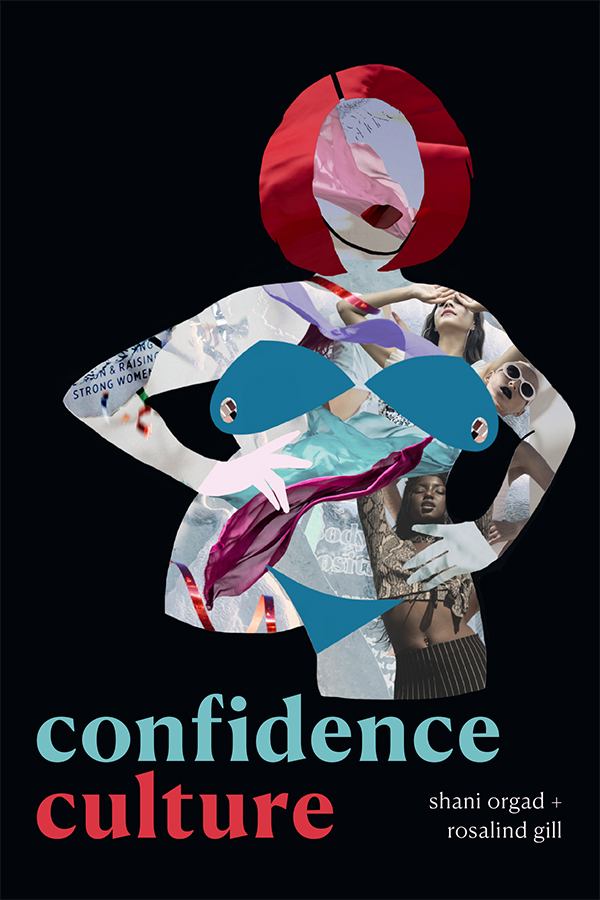Suddenly, the right has discovered an enthusiasm for funding universities. Not with public money, of course: the government’s moratorium on Commonwealth grant funding – retribution for the Senate’s ongoing refusal to legislate fee rises and funding cuts – remains truculently in place. Instead, government MPs’ excitement has been over Paul Ramsay’s ‘Centre for Western Civilisation’, the healthcare king’s massive endowment for humanities education in this country. More accurately, the conservative ferment has been prompted by the Centre’s difficulty in finding a berth in the Australian higher education system. For anyone with a weather eye on The Australian or even the ABC this last week, it’s been hard to miss the expostulations at the ‘gutless’, ‘unforgivable’, and ‘abject’ reluctance of the ANU Vice-Chancellor, Brian Schmidt, to allow Ramsay’s $3.3 billion bomb to be dropped on his institution.
Virtually unlimited opportunities present themselves for decrying outside interference in universities and – the dialectical flip-side – how universities themselves frequently solicit and embrace it. This has any number of aspects: the pharmaceutical, tobacco and extractive industries’ permanent and often successful bids to addle scientific independence; the influence of corporates – bankers, ‘defence’ industry supremos and others – on research agendas and their embeddedness at the highest levels of university governance; universities’ now structural dependence on private funding sources; the disgraceful national interest requirement for research funding; the attempts at political influence through bodies like the US Studies Centre at the University of Sydney (my own institution), or Confucius Institutes everywhere (contrary to popular belief, there is no evidence of attempted political influence on undergraduate education by the Confucius Institute at Sydney, and precious little of formal CI control over academic decisions anywhere); the wholesale surrender of most Vice-Chancellors to governments’ low-cost (to government, not to students) vision of tertiary study; or what Ulrich Beck memorably dubbed the ‘McKinsey Stalinism’ of universities in much of the world – that is, higher education authorities’ negligible willingness to recognise any principled difference between the norms of academia and those of the private sector.
Anyone who opposes the Ramsay Centre must oppose these travesties too. If the present furore over Ramsay’s ‘Western Civilisation’ courses drew greater attention onto them, that would be a welcome spin-off. Typically, however, culture wars like this one mainly serve to direct attention away from the issues of the greatest substance, not towards them. With or without the Western Civilisation degree, and whichever major party is in government, the corporate stranglehold around Australian higher education shows no sign of loosening.
It is disconcerting to see Ramsay’s initiative, intended as a kind of shock humanitarian intervention into Australian Arts faculties, even cautiously greeted in some quarters as a possible victory for the liberal arts if done properly. The fact that it is spearheaded by John Howard, without question the most vicious and sectarian educational vandal of recent political history should be enough to raise red flags.
So should the fact that, if Tony Abbott is to be believed, it was all his idea. Abbott’s account of the Ramsay Centre’s birthing must surely be the most widely noted article in Quadrant since Roger Franklin suggested that bombing the ABC would have been a justifiable move (Keith Windschuttle, the editor, later apogised for Franklin’s comments). Ramsay, Abbott tells us in a recent Quadrant article, ‘was especially conscious of the scriptural observation: to whom much is given, much is expected’. That gave the former PM his opening:
So why not, I said, put the Ramsay fortune to work to give people a formation in the knowledge and the values that had once been taken for granted but were now at risk of being forgotten, even though no less necessary for our society to flourish?
Ramsay agreed. His Centre for Western Civilisation would provide generous scholarships to around one hundred undergraduates each year, handpicked for their high university entrance rank and for their ‘potential for leadership and community contribution’. The students would be enrolled at two or three existing universities, which would be funded to employ academics to dispense a ‘great books’ curriculum in small, personalised tutorial groups, Oxbridge-style, so as to transmit ‘the deeper cultural and spiritual heritage that’s necessary for a free market economy to work’. Abbott’s formulation, refreshingly candid in its admission of the economic base for Ramsay’s ideological superstructure, is echoed in Centre CEO and former banker Simon Haines’ endorsement of the trickle-down virtues of global capitalism in his promotional video on the Centre website. (Will the academics appointed to conduct this teaching be on super-contracts and therefore not employed on union-negotiated terms? Will they do ‘ordinary’ teaching too? Will they be entitled to favourable research and other conditions? None of this is known.)
As well as its undergraduate programme, the Centre would support postgraduate research overseas, and sponsor summer schools, visiting professorships, and public events. What could possibly be wrong with that?
We’ve been here, of course, before. Actually, in one way or another, we’re always here. The extensive answers that have been forthcoming so far to the ‘what could possibly be wrong’ question have mostly stressed the ‘culture wars’ dimension of the Ramsay controversy. With reason: opposition to the Centre is the latest flashpoint of the old – and, frankly, trying – struggle over intellectual hegemony in the academy and wider culture between ‘cultural Marxists’ and ‘sensible’ conservatives. Many academics who oppose the Centre and all it stands for have a tendency to believe that, faced with the prospect of another major ideological fight, abstention is the only smart attitude. Let’s oppose Ramsay on academic freedom, not on the ‘Western canon’, they urge. For reasons I’ll explain later, that view is, I believe, wholly mistaken.
The public commentary offered by all the main actors of the Ramsay Centre signals its unambiguous status as an institution on, and of, the right. Abbott, who sits with Howard on its board, has identified the ‘serious risk’ that, without a firm guiding hand, the Ramsay Centre would, like ‘every organisation that’s not explicitly right-wing’, in time go over to the left – a ‘waste’ of Ramsay’s legacy that the former PM is determined to prevent. (Greg Sheridan, not officially involved, agrees, noting that ‘an institutional initiative essentially by conservatives that is captured and misused by the left is familiar and deadly’.) Now that Kim Beazley has resigned to become, of all things, governor of Western Australia, the Centre can still wheel out Joe de Bruyn (in Whitlam’s formulation, the ‘Dutchman who hates dykes’), as a meaningless gesture to the ideal of non-partisanship on the Ramsay board – de Bruyn is president of the SDA, the closest it’s possible to come to a Liberal Party-affiliated union.
The Centre’s courses aim to foster an appreciation of the supposedly distinctive virtues of the ‘West’ – a category apparently offered without complexification or historicisation – in undergraduates. As everyone now knows, Simon Haines told The Australian that they ‘would not be wanting to hire somebody who is coming in with a long liturgy [did he mean litany?] of what terrible damage Western civ had done to the world’. And as over 130 University of Sydney academics, including me, have written in a much reported open letter to their VC, Michael Spence, who is currently in talks with Ramsay, ‘the intention to predetermine academic outcomes evident in these remarks is clear’.
For anyone who has managed to sit through the other speakers, Haines’ own video on the Centre’s website reflecting on the ‘achievements’ of Western ‘civilisation’ brings some relief. Of particularly exemplary fatuousness, the testimonials by John Howard and Elizabeth Stone, the headmistress of Queenwood Girls’ School in Mosman, stand out. It would, all in all, be encouraging to imagine that the halting intellectual mediocrity of Howard and Stone’s performances was the best the Australian right could muster. Unfortunately, however, it’s exactly the banality, the immediately recognisable dog-whistling of remarks like Howard’s that critics of Australian history should ‘understand how lucky they are to live in this country’, that is meant to do all the work. Haines, at least, clearly has a conception of what academic intellectual labour is.
Important ideas and texts of the European past must certainly be studied at universities, as already happens everywhere. But they should be studied critically. That isn’t an arbitrary, dogmatic stipulation; it’s a necessary protection against the intellectual conformism and authoritarianism that is an intrinsic danger in ‘liberal’ humanities education. To insist on the necessity of the critical dimension of the humanities doesn’t mean that students and teachers can never admire or try to emulate ideas; it is simply to require that critique never be excluded as a mode of intellectual engagement.
Approaching the humanities critically means that, if the categories with which they started inquiry prove to hinder rather than facilitate thought, academics and students need to be ready to change, and if necessary discard them. No one can presuppose the ‘West’, the ‘Western canon’ or ‘civilisation’ (or, for that matter, ‘reason’, ‘equality’ or ‘class’) as categories of permanent analytical validity – border-walls against which the free passage of thought must necessarily be stopped. This is equally the case for the nebulous and supremely ideological ‘achievements’ named by speakers in the Ramsay promotional videos as distinctive to ‘the’ European cultural tradition (singular): ‘freedom’, ‘equality’, ‘the rule of law’, or, ironically, ‘tolerance’. One of the aims of studying intellectual history – I myself teach a course called ‘Western theories of language’ – is precisely to test and to question the categories used to frame the inquiry. For these reasons, no study of the cultural legacies of the European and English-speaking worlds can be predicated on their necessary exemplification of some ‘Western’ essence, however hybrid, still less on their distinctive excellence in comparison to other global traditions or – the unspoken but obvious corollary – their manifest destiny to conquer the global landscape of ideas.
Haines is aware of the force of the anti-essentialist critique of the concept of the ‘West’. In a move with a whiff of both Wittgenstein and Heidegger, he acknowledges that we can’t actually capture any distinctive characteristics of Western civilisation in a list. That’s fine: like any other compendious pretheoretical category, it’s no surprise that the ‘West’ proves resistant to definition. So do ‘the Arab world’, ‘pop music’, ‘religion’ and other similar labels. For Haines, something being indefinable doesn’t mean you can’t still rest significant claims on it. The Western essence that he can’t define rationally, he pushes back into an intuitively felt aspect of our experience: even though, he says, we ‘can’t say what it is’, ‘we all know what it is, we all live with it’. Like religious faith – the Centre’s distinctly Christian ethos is obvious to anyone who explores it – ‘Western civilisation’ is something that is lived, not intellectually grasped.
As the head of a ‘Western Civilisation’ centre designed to be, in Abbott’s now notorious words, ‘not merely about Western civilisation but in favour of it’, the difficulty of saying exactly ‘what it is’ is potentially embarrassing. In his Quadrant essay from last year, ‘An education manifesto for Western civ’, Haines saves the furniture by performing the usual nominalist reduction: by the ‘West’, he tells us, he just means everything that’s been done in what we conventionally refer to as the ‘Western’ cultural area:
‘Western civilisation’ is a handy phrase referring to a very large and dynamic collection of multifarious but still associated practices, artefacts and ideas. … No essence, any more than a long piece of rope has a single thread running all the way through it: but it may have long sequences or patterns of threads of the same colour, and still it’s one rope, and when it takes you all the way to the summit, you will find that the whole point, the meaning, was in the climb.
Haines feels no reason to justify the canon of texts and works he cites as central to ‘Western civilisation’: since, he admits, you can’t actually say what that is, explaining why one set of texts and not another exemplifies it is obviously impossible. Will Avicenna, al-Fārābī or Averroes be on the reading list along with Aristotle? Will students be exposed to the Talmudists and Kabbalists of Provence or to the Hebrew poetry of medieval Spain? Will the Rāmāyaṇa or Mahābhārata be studied, as well as the Iliad? Will Marx, even? All these have played important, sometimes central, roles in European culture. How many women will feature on the reading lists of Ramsay Centre courses (there isn’t a single one on the sample reported on in the ANU deal)?
Haines also gives us no convincing reason why the ‘West’s’ collection of ‘multifarious but still associated practices’ should exclude the imperial conquest, environmental despoliation, racist violence, militarism and genocide that, compared to the discovery of penicillin and the composition of the Odyssey, are just as (more?) characteristic of ‘Western civilisation’ — except that he’s bored with the topic. ‘Yes,’ he wrote in the same essay, ‘there have been terrible crimes and abuses—as with any civilisation, and any large-scale human enterprise at all. … But we’ve heard about all that ad nauseam: now let’s hear the other side.’
In a context of the Australian state’s ruthless ongoing dispossession of Aboriginal people and its brutality towards both them and refugees, Haines clearly has no interest in Australians developing, in Victoria Grieves’ words, ‘an interpretation of history that will wash the blood off their hands’. His dismissal of millennia of violence squares with Ramsay’s purpose: to ‘foster a new generation of leaders with a deep knowledge and appreciation of Western civilisation and a desire to defend and promote it’.
In the midst of the controversy over the ANU last week, Haines spoke to the Australian Financial Review. In apparent direct contradiction to the ‘ad nauseam’ comment, he told them that, actually, ‘we don’t expect the course to shy away from the bad things of Western civilisation. But we’re keen for people to see Western civilisation has a capacity for correcting evils.’ Whether this is a fundamental change of Centre policy or simply telling the media what it wants to hear, is a question to which the Ramsay board presumably knows the answer.
Ramsay wanted his Centre to train a ‘cadre’ of leaders. In line with the political discipline this implies, it’s no surprise that the picture of educational responsibility Haines outlines in his Quadrant essay apparently does not require students to be presented with, or judiciously weigh up, different aspects of European cultural and intellectual history, with the aim of discovering the virtues and disadvantages of different possible descriptions of it. Haines seems to envisage educational responsibility as the provision of right-leaning propaganda to counterweigh the left-leaning varieties he sees as in the ascendant. In Haines’ university, education does not mean creating intellectual environments where students are presented with competing accounts of a phenomenon, and where teachers model the processes of rational evaluation of them. Rather, Haines’ vision seems to be of a university education where the student is marketed the competing ideological wares of thoroughly partial and unaccountable stakeholders from the left and right, and where it is up to the student to work out whose product to buy. Why it is best for students to be left to their own devices to do this, without their teachers offering them any example of how to evaluate or reconcile conflicting ideas, Haines does not explain.
In the same breath as his ‘ad nauseam’ comment about the need to diversify leftists’ black armband view of Western history, Haines rejects the accusation that the Centre aims to give its students any definite answers:
Let [students] find the values they need for themselves, induce them from the texts, ideas, arts and institutions they study. …
Let the students find out whether there is or isn’t a thread, or a pattern of threads, running from Pericles’s funeral oration to Justinian’s Corpus to Magna Carta to the Bill of Rights to the Declaration of the Rights of Man; or for that matter from Lysistrata to the Declaration of the Rights of Woman; or from Helen of Troy to Dido to Héloïse to Anna Karenina: or from Milton’s Satan to Anakin Skywalker.
Elsewhere, however – in his 2015 essay ‘Fostering moral values through poetry’, which Ramsay insiders surely read during Haines’ appointment process – he argues for the original, more dogmatic position. Even if, as he says, Western ‘civilisation’ has ‘incompatible or incommensurable’ value systems at its foundation, ‘the existence of a clear value system seems to offer evidence that a society is strong, flourishing and healthy’; explaining how to think about values to students, he says, is ‘surely part of the activity of fostering values-health or well-being’. Societies, then, all need a ‘clear’ value system – that is, a determinate one, not one fractured by internal inconsistency. The surface pluralism Haines professes in one context gives way in another to the alarmingly authoritarian connotations of ‘strength’, ‘flourishing’, and ‘health’ within a transparent system of social norms.
This familiar conservative vision is, of course, the regular butt of leftist critique. In his Quadrant piece, Haines comments in these terms on the stock objections raised by the Centre’s – in his view, overpoliticised – opponents:
All that noise merely prevents a generation of young people from hearing the “music of humanity” as played by one of its great orchestras—and from themselves learning to play (yes, of course, there are other orchestras: by all means listen to those too: but how many can one person actually belong to?).
That final parenthesis is where all Haines’ elaborate structure of justification comes tumbling down. Granted, Haines is saying, ‘Western civilisation’ is no definable thing; granted, too, that it is not the role of education to predetermine answers and that students should be free to reject the notion that Anakin Skywalker has something to do with Milton’s Satan. Even granted all that, the West is still a civilisational collective which students ‘live with’, and to which they belong near-exclusively (‘how many can one person actually belong to?’). Haines is convinced, in fact, that the Western one ‘may be the closest we’ve yet come as a species’ to a perfect civilisational model.
If this is not to be vacuous, it requires that the ‘model’ to which all ‘Westerners’ ‘belong’ and with which they ‘live’ must have the same basic properties: what sort of ‘model’ looks different from one application to another? Furthermore, as distinctively Western, the values this model specifies must be additional to the ones we get from the basic normative template (‘don’t kill your kids’) that all human societies presumably observe. At the start of his essay, after all, Haines had defined ‘civilisation’ in a way that presupposed its possession of fixed features: a civilisation, he said, is ‘the communal arrangements of relatively large or dense populations, broadly affiliated by enduring practices, rules and beliefs, and embellished and facilitated by characteristic arts, techniques and individuals’ (my italics). In funding his Centre, Ramsay’s purpose was not for students to appreciate a ‘Western civilisation’ that, in practice, had variable and indeterminate ‘practices, rules and beliefs’. If all Westerners live with and belong to fundamentally shifting and variable communities of practice and belief, the Centre’s very premise becomes untenable.
As university staff are confronted with the question of whether, and how hard, to oppose the arrival of Western Civilisation courses on their campuses, it is important to document the vigour of the Australian right’s support for the Ramsay Centre, so we understand exactly what Vice-Chancellors might be getting us into.
‘Yes,’ Henry Ergas tells us (Ramsay defenders seem to like starting their sentences with ‘Yes’), ‘references to Western civilisation have at times been used to justify racism and even genocide.’ ‘But,’ he triumphantly concludes, ‘it is every bit as true that the Western canon contains the most powerful rebuttals of racism ever written and provides a uniquely far-reaching affirmation of human dignity and equality.’
Double whammy for the antiracist. Primo, the European and Anglo worlds aren’t really responsible for their historic crimes: the Holocaust, Inquisition, Crusades, and any number of subsequent invasions and interventions didn’t burst fully formed from the breast of ‘Western civilisation’, but were speciously justified by ‘reference’ to it. Secundo, never mind about the anticolonial resistance championed by subject nations throughout the imperial world: it turns out that antiracism attains its most perfect form in … the West itself! The West has a monopoly not only on the good, but on opposition to its own (occasional) aberrations. The anticolonial struggles of colonised peoples from Australia, to India, Haiti and the Americas, New Caledonia, or Africa, are simply invisible to Ergas. In his totalising vision, the fact that some – some – modern anticolonial leaders were Western-educated obliterates the mass popular insight and collective agency with which the victims of European colonisation led, and lead, resistance to it. This is just as true intellectually as it was in frontier wars.
Haines himself makes a similar move to Ergas when he insists that
the very terms its critics use to attack ‘Western civilisation’, sceptical, empirical, political, are the terms it has taught them. The chambers and spaces they march and protest in, the institutions they condemn, are the ones it has built and opened and maintained for them. The liberal tolerance they sneer at is what tolerates their sneers, where other civilisations would have imprisoned them, and do.
In his ‘Fostering moral values through poetry’ essay, Haines concludes a sketch of the history of the moral values landscape in this way:
Anyway although all this is a somewhat Western picture, influenced by the classical world of Greece and Rome, by the Bible, and by the Enlightenment, I still think much of it is more widely shared today, especially at the level of personal values, and at the level of claimed “human rights”. And all of this, together with its analogues in other cultures, makes up a large part not just of the “values world”, but of the human world: since the recognition of values, that there are such things and that we live by them, is a large part of what being human actually means.
This paragraph deserves some scrutiny. Haines does not limit himself to the unremarkable claim that historically Western values have spread throughout the world. He goes further: together with their ‘analogues’ in other cultures, Western values constitute a large part of the human world.
How, exactly, is that meant to work? If a value is universal (‘human’), it cannot be ‘Western’ in any relevant sense: the value ‘don’t kill your kids’ held by Chinese people can’t be described as an ‘analogue’ of a Western value – it’s a universal human value for which no one ‘civilisation’ can take credit. If certain values are historically Western, and happen to have spread, that does not make them ‘a large part of what being human actually means’: it just means that they have spread. This is no more about ‘being human’ and what that means than is the fact that certain beliefs have spread, like the belief that the world is round. Flat-earthers are weird, but they are certainly not less human than everyone else. Nor are those who do not share Western values.
Haines’ extraordinary universalisation of Western categories is an intellectualised version of ‘we grew here, you flew here’, transplanted from the Cronulla race riots to the domain of moral reflection. The gliding cadences of his non-stick, gentlemanly prose make it harder, perhaps, to see it for what it is: a clear example of the racism in which, to use noted French antiracist Christine Delphy’s formula, ‘the characteristics of the dominant are not seen as specific characteristics but as the … normal way of being’. (Other conservative defence of Ramsay has, incidentally, also evidenced the inversion of Delphy’s formula: perfectly normal ways of being that are appropriated as unique characteristics of the dominant. The IPA’s Bella d’Abrera, for instance, has hilariously claimed that ‘Western civilisation has also given the world inquiry’. Inquiry. Non-Westerners, apparently, never asked serious questions.)
If Haines is basically unaware of his work’s potential for political instrumentalisation, he is in many ways the ideal man to front the Ramsay Centre. If, as seems entirely more likely, he is wholly aware of what he is doing, he is even better. Here he is in the same essay, now on the topic of colonialism, in the context of Seamus Heaney:
So the advice being given to this living Irish poet by his famous dead compatriot is: for goodness’ sake forget about being from a “subject people”; it’s for stupid codfish to worry about that kind of thing. Get on with your work, and above all take possession of the English language. Make it yours. Ireland has its own language, yes. But, Joyce is saying, if you want to be truly great, then instead of wasting time and energy in resentment at being “colonized” by this world language, turn the table on it, colonise IT, own it, turn it to your advantage. Ireland, the Irish, can have two languages now.
Haines’ immediate application of this point is to Hong Kong English: ‘I can tell you, that for Hong Kong students this is advice they like very much to hear. … They aren’t any kind of subject people or colony. Time to swim on their own.’ But the letter of his words will gratify every supporter of terra nullius and the Northern Territory Intervention, since Haines – speaking as head of an academic ‘Centre for Western Civilisation’ – is endorsing the view in Heaney’s poem that colonialism in general is the ‘kind of thing’ that is for ‘stupid codfish’ to worry about.
This apologetics of Western colonialism looks a lot like the antipodean spawn of the long-term project in imperial rehabilitation pursued by Nigel Biggar, the Oxford historian responsible for the 2017 injunction ‘Don’t feel guilty about our colonial history’, who causes an ongoing scandal in the UK. Haines, it is worth noting, certainly isn’t above a bit of racist fun-poking:
Most educated Chinese people, for example, would recognise much of this list [of European cultural products] as “Western”, are interested in its features, and where feasible would like to photograph themselves standing in front of one of them.
Deplorable though that remark is, the point is not to call for a witch-hunt against Haines. The point, rather, is that no one who takes antiracism seriously should be welcoming Haines or his Centre onto their campus. To judge by his published attitudes, Haines will at worst encourage and at best offer no resistance whatsoever to the ideologues on his board. In the current social and political climate – rampant politically-driven Islamophobia, sharpening geopolitical tensions between the ‘West’ and China, the shocking ongoing legacies of settler violence in our own society – universities should not be digging students in behind the cultural trenches of a ‘Western’ identity that has no real interest in difference or hybridity. The Ramsay conviction that, as expressed by Abbott and endorsed by Haines, Western values and knowledge are ‘necessary for our society to flourish’ contains Operation Sovereign Borders (‘Stop the Boats’), the axing of the Safe Schools programme, opposition to same-sex marriage, and the old and current Stolen Generations in germ. It should be opposed by anyone who cares about the importance of diversity, inclusiveness, and mutual respect to our society.
The ideological case against the Ramsay Centre is, then, overwhelming. In our open letter, my Sydney colleagues and I called it ‘European supremacism writ large’. The charge is serious, and was intended seriously: the Ramsay Centre sets out to provide a platform for the dissemination of a hegemonic vision of the modern West, enclosed, when the occasion demands it, in opportunistic and incoherent liberal platitudes. Just by itself, the Centre’s now very public existence, to say nothing of its programme of public talks, will amply fulfil this propagandistic purpose, boosted by whatever academic prestige it is able to claw back from the current furore.
Overwhelming as it is, this ideological case is far from the only serious objection to Ramsay, at least as far as the undergraduate education part of his scheme is concerned. The unfortunate truth is that ‘great books’ courses hardly depart from usual practice, especially in the US. One gathers that Ramsay may not have really understood what a genuine university education in the liberal arts even was. But whatever Jesuitical prospects of character-formation he might have imagined to be possible at university, in the classroom itself, things can, and tend to, get out of control. Thankfully, ideas are hard to channel, and no university teacher can have any confidence in their ability to carry out ideological ‘content delivery’ of the kind that Ramsay seems to have envisaged. We have no inkling, of course, of who might be appointed to academic positions in the Ramsay scheme, nor what their actual political sympathies might turn out to be. In any case, there is no guarantee that the Eurocentric content of the Ramsay curriculum will automatically produce European cultural supremacists. The Ramsay board presumably understand this. For them, the Centre’s main utility surely lies in the social capital and academic respectability its connections with mainstream universities will bring. Again, this is something that any genuine progressive should resist.
Other reasons to oppose the Centre are thoroughly non-ideological. The first concerns access to education. Ramsay’s vision is for its courses to be taught in small tutorials at significantly more favourable student-staff ratios than subjects covering other cultural traditions. This on its own conveys a powerful, and completely intolerable, signal: that, as the Sydney open letter put it, ‘the study of the European cultural tradition warrants better educational circumstances than that of others’. Devoting uniquely favourable conditions to the study of the ‘West’ establishes a structural discrimination in the student population in a way that no university should endorse: what does a university suggest to a diverse student body by reserving the best conditions for students who want to study the European and Anglo worlds? Universities, it’s true, offer scholarships and special arrangements for all sorts of different areas. The Ramsay Centre’s proposal for a standalone, elite major is of an entirely different order.
The quality and the democratic nature of a humanities education are both important: students must all be taught well, and they all must be taught equally well. But of the two, democracy matters more. The humanities are, by definition, interpretative ventures intrinsically concerned with the analysis and description of the human world, in which disciplinary mastery is largely a matter of expert judgement, not objective measurement. In this kind of undertaking, students’ collective intellectual growth is the ultimate rationale of teaching. In this light, there can be no justification for wanting to fast-track the development of one group of students over another, regardless of the criteria on which the happy few, destined for presumptively superior educational treatment, are to be selected. Better the same underfunded conditions for everyone than a class divide in the student body, whatever disciplinary or overtly or covertly (‘meritocratic’) socio-economic basis for it is established.
In his essay ‘Decolonizing the university: new directions’, Achille Mbembe discusses the meaning of access to higher education:
when we say access, we are not simply thinking in demographic terms, although these are crucial. When we say access, we are also saying the possibility to inhabit a space to the extent that one can say, ‘This is my home. I am not a foreigner. I belong here’. This is not hospitality. It is not charity.
The security for students to feel ‘at home’ in an institution is indispensable if intellectual growth and the possibility of critique are to be fostered. The development of confident independence of mind will be slowed if students are alienated from the conditions in which they are studying. Priyamvada Gopal’s observation about the UK applies:
To decolonise and not just diversify curriculums is to recognise that knowledge is inevitably marked by power relations. In a society still shaped by a long colonial history in which straight white upper-class men are at the top of the social order, most disciplines give disproportionate prominence to the experiences, concerns and achievements of this one group.
Improving access to higher education is incompatible with embracing the social, cultural and intellectual exclusivity of the Ramsay scheme.
Yet another grounds for opposition concerns straightforward academic independence. Brian Schmidt gave as his reason for rejecting Ramsay’s overtures to the ANU the fact that ‘the level of influence [Ramsay negotiators] wanted was unprecedented with any other program we’ve done’: the Centre being granted an ‘indicative role’ in curriculum, reading lists and selection of lecturers, in exchange for $5.7 million in academic salaries and student fees, according to the AFR (more interesting details here). There is no reason to doubt Schmidt’s explanation: The Australian’s idea that either students or the NTEU could stand between a VC and a cheque as large as the one offered by Ramsay is preposterous. John Howard acknowledged that ‘as a body that was financing this, obviously, we had input, you would be crazy to not have some input’. In Howard’s judgement, however, ‘there was nothing that Ramsay sought that undermined the academic freedom’. Given his government’s track record of political interference in research funding, Howard has forfeited any right to being listened to on the topic of academic freedom.
In the parlous current state of government funding, no VC would object to the kind of cash injection that Ramsay has put on the table. Taking this kind of money would, it’s true, seriously undermine the principle that education funding is the responsibility of the state, not private individuals; accepting the cash would, nonetheless, be understandable. Accepting and institutionalising influence would not be. Any VC should object to a proposal for a third party to take over academic decision-making, and exert the kind of influence Charles Koch wields at George Mason University. In the case of the sciences, the idea that a private foundation should make judgements about curriculum or appointments is plainly ludicrous. It’s just as ludicrous in philosophy, classics or history. That is where the outraged parallels drawn by conservatives between the Ramsay Centre and other externally funded campus bodies, like the ANU’s Centre for Arab and Islamic Studies, fall down: no suggestion has been made, even in The Australian, that the several countries of the region which fund CAIS, two of which sit on its advisory board, have the kind of power to shape academic work that Ramsay wants.
How should academics respond when faced with such a naked attempt to pervert the character and independence of their institutions? One reaction to the controversy has been to ask whether, no matter how objectionable their views, conservatives are not entitled to a place on campus, as though that is what all the fuss is about. Of course conservatives have a place in the university – to do academic work applying academic standards, not to front a scholarly cash for comment scheme. No one, rightly, called for Haines’ dismissal from The Chinese University of Hong Kong for the views he expressed in ‘Fostering moral values through poetry’. The objection is not to conservatives, it is to allowing John Howard and Tony Abbot to use a university’s good name for their own, political ends.
There is no quarrel over conservative thought being studied, and studied sympathetically, whether by actual conservatives or others, in universities. Any suggestion that the current opposition to Ramsay is motivated by disregard for the intellectual heritage of conservative ‘Western’ thought – or, still less, a disregard for ‘Western’ thought in general – is, quite simply, in cloud cuckoo land. Equally mad is the widely repeated claim that rejection of the Ramsay vision is tantamount to banning access to the ‘great texts’ of the European past. The disciplines of classics, philosophy and European literatures are certainly not as healthy as I, for one, would like them to be in Australian universities. But they are there, and they are usually in less parlous condition than the no less vital study of Islamic, Asian, African or indigenous cultures. All Ramsay had to do to support them was write a cheque.
Some other colleagues have a tendency to pooh-pooh what they see as the tired sloganeering that yet more culture wars inevitably entail. Opening a Ramsay front in those wars is dismissed as politically counterproductive, as well as beneath our intellectual dignity. Opposing Ramsay too stridently, this tactical argument runs, is guaranteed to rain retribution down on universities in the future. The ‘smart’ thing to do, accordingly, is keep our heads down, not engage the right in ideological warfare, and trust that the usual university-internal processes will suffice to scotch the Ramsay initiative. Progressives, on this view, are destined to lose the ‘battle of public opinion’ the moment they open their mouth on ‘Western values’, and the humanities will pay for it in the next LNP budget.
This is a characteristic reaction, but it seems to me to be deeply misguided. Another way of describing ‘not engaging in the culture wars’ is ‘letting the right win them’. Culture wars are nowhere near as important as the real battles of Australian politics – opposing the forced removals of Aboriginal children, defending the environment and refugee and workers’ rights – from which they certainly threaten to distract energy. But in the terrain of the humanities, the contest of competing visions of the human world, each vying to demonstrate its greater rationality, is no less than constitutive.
On Ramsay, Greg Sheridan is actually right: ‘it is of the greatest importance that the Ramsay Centre not get into bed with any other big, public university’. To make sure this is how things turn out, the time for agitation is now, before it’s too late. Building the case against the Centre as soon as the prospect is raised, like we have done at Sydney, opens the possibility of strengthening the kind of constraints on ‘Western Civilisation’ courses that university authorities will feel obliged to insist on. It also avoids giving the impression that we are complacent about conservatives’ bid to throw a mystifying, reactionary and irrationalist bridgehead into Australia’s already fragile higher education system. If we made no principled complaint now, we would be inviting them to try it on again.
In his 1991 book Rhetoric of Reaction, Albert Hirschman discusses the ‘perversity thesis’: the idea that ‘any purposive action to improve some feature of the political, social or economic order only serves to exacerbate the condition one wishes to remedy’. As is invariably the case in questions of political strategy, the perversity thesis has been sticking its head up around Ramsay. There’s always an argument that opposing things frontally will make them worse. For the sake of transparent and rational political debate, it should be given little credence. Certainly, nothing in the history of recent university politics makes it plausible. It was not by trusting the usual processes of university governance, nor by skirting the intrinsically political issues involved, that the catastrophe of full fee deregulation was averted in 2014: instead, students marched and disrupted a flagship national current affairs program, and academics went public with uncompromising criticisms of deregulation’s defenders, their own VCs included. This, not the comparative mousiness of the more ‘sophisticated’ response, is exactly the kind of resistance to Ramsay, and exactly the kind of defence of universities’ socially beneficial role, we need now.
